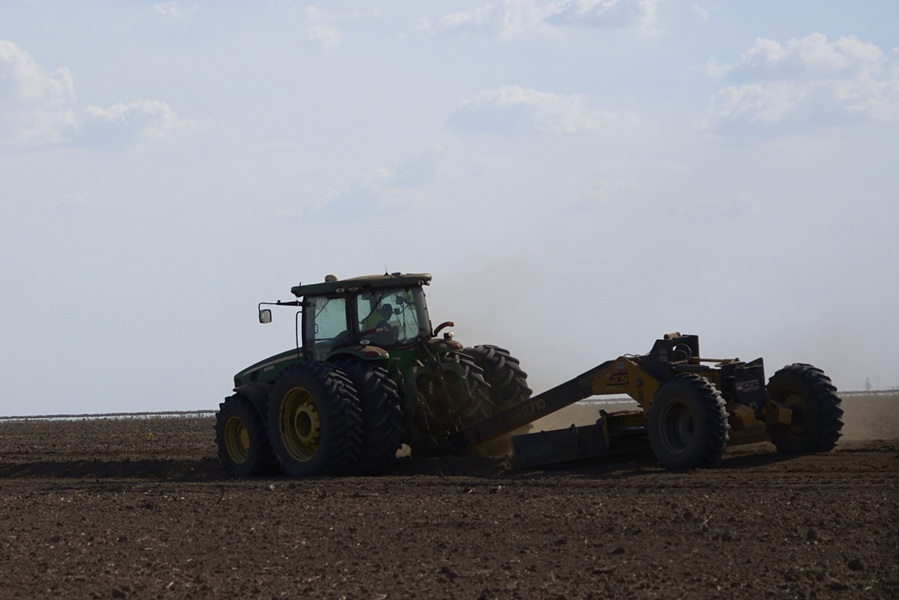From Gilbués, Baixa Grande do Ribeiro, and Santa Filomena (PI) – SLC Agrícola, one of Brazil’s largest producers of soy, cotton, and corn, leased land in southern Piauí from farmers accused of land grabbing by members of the region’s traditional community. The businessmen are facing legal actions for the overlap of their farm with the territories of the Melancias community and are named in an investigation mapping the impacts of agribusiness in the region.
A 14,500-hectare portion of Cosmos farm, owned by businessmen Ricardo Tombini and Eduardo Dall’Magro, was annexed to the Parnaguá property, one of SLC’s main production hubs in Santa Filomena, in the Brazilian state of Piauí. The announcement of the land lease was issued by SLC, which has a long history of supplying Bunge and Cargill, in August 2024, for soybean and cotton production.
The contract lasts 15 years, beginning in the 2024/25 harvest season and ending on August 30, 2039, according to this investigation by Repórter Brasil in partnership with O Joio e o Trigo and The Bureau of Investigative Journalism.
Repórter Brasil identified, by comparing the geographic coordinates of the property with those listed in the environmental license document, that this area is part of Cosmos farm.
When questioned, SLC stated that the leased area of the farm does not overlap with the traditional community. “For the purchase or lease of new areas, the evaluation considers the possibility of overlap with the territories of traditional groups,” says the company. SLC explained that if such an overlap is identified, the company does not proceed with the negotiation. “Under the lease agreement terms, SLC Agrícola only assumes ownership of the leased polygon. The rest of the property remains under the ownership and responsibility of the landowner,” they responded. Read the full statement here.
ASSINE NOSSA NEWSLETTER
Conflict region
The region has been the site of land conflicts since the 1980s, when the area began being occupied by agricultural ventures. Residents of the traditional community report violence, environmental degradation, and water contamination from pesticides. The situation has been taken to court in various actions.
“The conflicts are never peaceful [in the region]. They are not disputed on paper, but through force,” says Juliana Martins Carneiro Nolêto, a prosecutor and coordinator of GERCOG (Special Group for Land Regularization and Combating Land Grabbing) in Piauí. “The main impact for these communities is their physical integrity. These land grabs generally involve violence, tractors demolishing houses.”
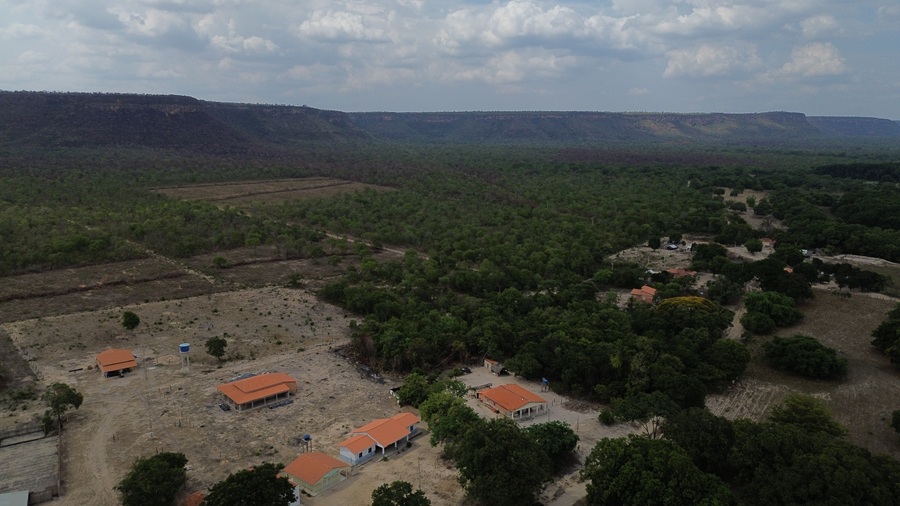
Legal actions, a technical opinion from the MPF (Brazilian Federal Public Ministry), and reports from organizations working in the area state that Fazenda Cosmos is pushing communities like Melancias by overlapping the property with areas within backyards and homes, in a perimeter that, in practice, would be larger than the originally registered property area.
“Piauí is regularizing land grabs, not the territories of traditional communities,” states the MPF in a civil public action calling for land regularization for communities around Cosmos farm. In the action, the agency argues that the state negotiated land with businessmen without verifying if they were actually occupied.
Tombini and Dall’Magro claim in legal proceedings that they bought 30,400 hectares of land and the communities are invading the farm’s environmental preservation area.
We sent questions to the lawyers of both owners of Cosmos farm. In response, Tombini said in a phone conversation with the reporters that he bought the farm in 1995 and that the farm’s fence has been in the same place ever since. He claims that the Melancias community is invading the farm’s perimeter. When asked about the other issues involving the farm, he did not comment.
However, the purchase by the farmers is contested by Interpi (Institute of Land of Piauí) in court, in an action requesting the return of 2,800 hectares of Fazenda Cosmos, which would overlap with the Melancias community, according to the agency’s analysis.
The farm also overlaps with the territory of the Akroá Gamella indigenous people, according to an opinion from Interpi accessed by Repórter Brasil. A report from Funai (Brazilian National Foundation for Indigenous Peoples) lists the CAR (Rural Environmental Registry) of Cosmos among the agricultural enterprises causing impacts to indigenous peoples, as it overlaps with the Morro d’Água da Gruta and Morro d’Água de Baixo communities, as well as affecting the Environmental Protection Area of the Uruçuí-Preto River Springs. Deforestation and improper disposal of pesticides are among the issues identified by the agency.
“Today, in the state of Piauí, we are facing what is called modern land grabbing. They arrive, declare themselves the rightful owners of the land by filling out an environmental rural registration, which gives the property a false appearance of legality,” says Nolêto. “With this, they feel authorized to invade the community, using threats, expelling families, contaminating rivers, and contaminating crops,” she says.
In addition to the land disputes, Dall’Magro was convicted to three years and four months in prison by the Federal Court of Piauí in 2004 for keeping 21 workers in conditions analogous to slavery at Cosmos.
“The company leasing an area in conflict, with doubts about ownership, is completely irregular. It is like having a copy of a document that is already irregular, and then making a copy of the copy: you lease it,” analyzes Carlos Augusto Ramos, a forest engineer and Social-Environmental Credit mentor at the Conexsus Institute.
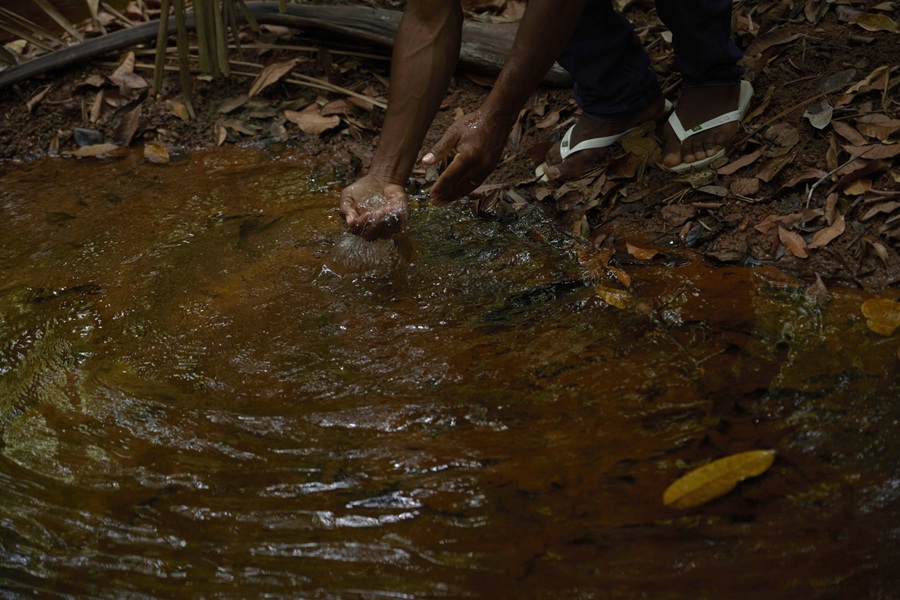
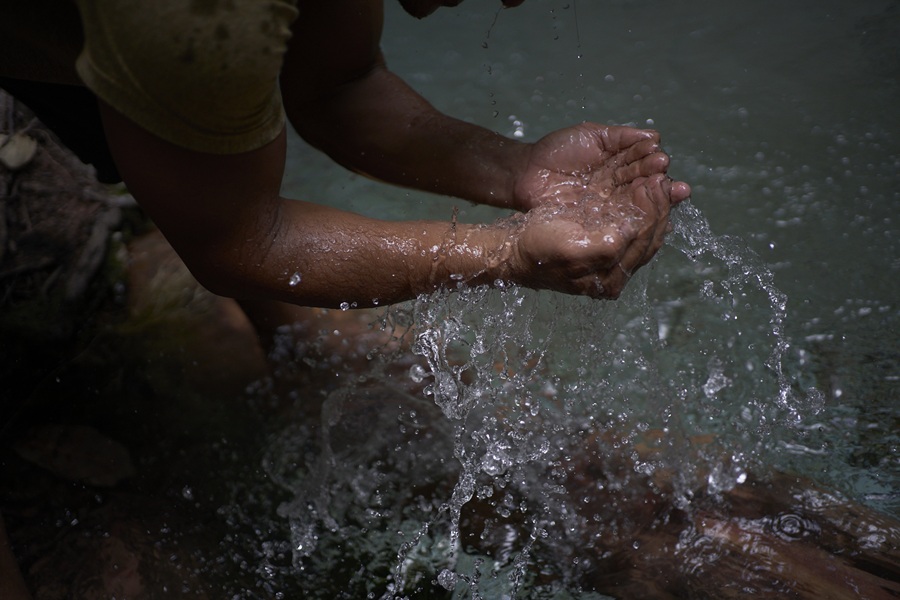
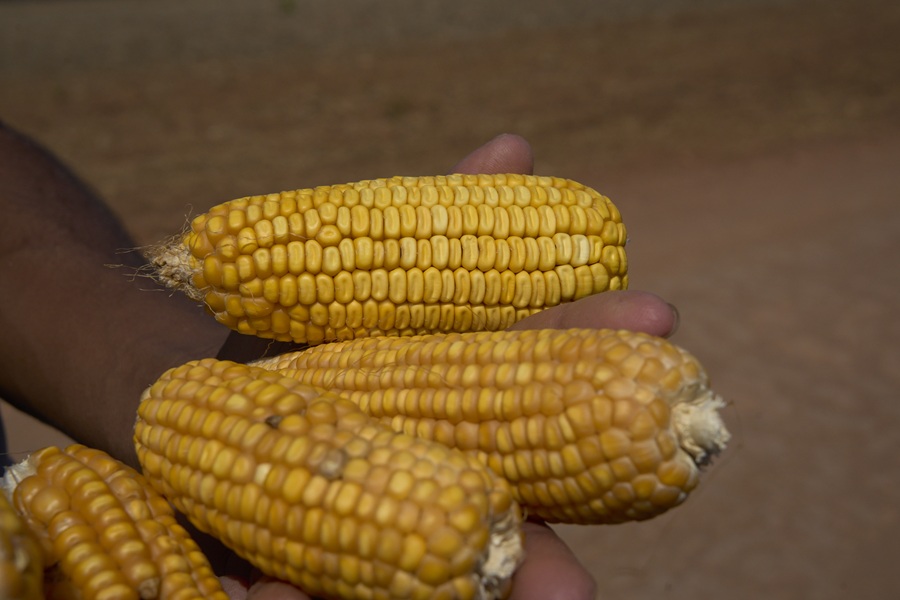
Melancias accuses farmers of land grabbing
Residents identify Melancias as traditional community with about 40 families, with records of occupation in the region since the late 19th century, according to information from Interpi. Its members live from family farming, extractivism, and cattle ranching.
In 2014, members of the community filed a lawsuit against Tombini and Dall’Magro questioning the georeferencing carried out by the farmers. They claim that Cosmos altered its boundaries, incorporating areas of riverside and traditional community. In the lawsuit, they state that representatives of the farmers conducted secret measurements in the area, crossing land occupied by the community for over 50 years, and based on these measurements, they applied for ownership with Incra (Brazilian National Institute for Colonization and Agrarian Reform).
The journalism team visited the region to speak with community members, with the support of the Rede Social de Justiça e Direitos Humanos e o Coletivo de Povos e Comunidades. The residents will not be identified in the report at their request. They claim that Cosmos entered 50% of the 979-hectare area they owned.
“They [the farmers] came in the most cunning way, with the illusion of ‘development’ — and we are the ones who pay the price,” says one person living in the community. “The river was rich in fish, now there is nothing left,” laments a resident. According to her, the scarcity is linked to pesticide use and deforestation, which “have changed the water regime a lot.” “The circulation was free,” she recalls. Now, “we can’t work” or “release the cattle” — which would compromise the families’ livelihood and the way of life passed down through generations.
According to one testimony, the new boundary “went over the houses.” Meanwhile, families report they began to face “very strong threats.” “Our anthropological study records more than 150 years of existence,” says one of the residents. “We used to collect buriti and fish wherever we could,” they add.
A study by AATR (Association of Lawyers for Rural Workers) claims that Cosmos altered its boundaries to reach the riverbed. The study states that the farm’s georeferencing was done to confirm a “land grab” carried out earlier.
“These actions with georeferencing are typical cases of using technology to simulate ownership of land, but the land does not belong to them,” says Ramos.
In 2014, the residents filed a lawsuit to try to guarantee land ownership and obtained a provisional protection order. The case is still in court.
State claims the land
The agrarian conflict dates back to the 1980s. Cosmos’ lands were sold by Comdepi (Piauí Development Company), which at the time was the state agency responsible for land issues, to the companies Taomina Agro-Florestal Ltda and Aletron Produtos Químicos Ltda. These companies, in turn, sold the property to Varig Agropecuária S.A., which then sold the farm to Tombini and Dall’Magro. The sale process by the former Comdepi is said to have been carried out without considering the communities already occupying the territories, according to the AATR study and the MPF report. In court, Interpi claims 6,400 hectares of land that are considered state-owned and overlap with Melancias and other communities, including 2,800 hectares of Cosmos.
On October 15, 2025, the court ruled the action unfounded, stating that Interpi “did not produce technical evidence capable of supporting its claims.”
When questioned by Repórter Brasil, Interpi stated that although it “appears as the plaintiff, the legal representation of the State of Piauí is exclusively the responsibility of the PGE (Attorney General’s Office), which defines appeal strategies and procedural measures.”
In another case, a civil public action from 2020, the MPF demands action from Interpi and Incra on land regularization for the communities in the region, including Melancias, and highlights that Interpi “has been approached since 1992 to regularize the situation of the community.” In 2020, the MPF won a favorable ruling, and the court ordered the continuation of regularization.
Incra stated that “the State Land Institute is the agency responsible for regularization.”
Indigenous lands suffer impacts
Parts of Cosmos also overlap with land occupied by the Akroá Gamella people, according to documents from Interpi and Funai. In this region, they occupy the communities Vão do Vico, Morro D’Água da Gruta, Morro D’Água de Baixo, and Brejo das Meninas.
In a report, Funai states that agribusiness activities in the region are impacting indigenous peoples and calls for action from state agencies. Among the impacts cited are deforestation and “poison cemeteries,” which are areas used by agricultural ventures for improper pesticide disposal.
The agency marks the locations where these impacts occurred on a map. One of the deforestation situations listed has coordinates located on the edges of Cosmos, along the border with another adjoining property.
After the report was produced, the MPF opened an inquiry to “investigate state omissions and the lack of prior consultation on actions that impact the territories and way of life of indigenous peoples in Piauí,” according to a document accessed by Repórter Brasil.
When questioned, Funai stated that it “recognizes the situations of violence, environmental degradation, and water contamination by pesticides that have affected the Akroá Gamella people over the years” and informs that it has been working on the land claim of this people. Read the full response here.
Bunge was asked whether it buys raw materials from Fazenda Cosmos or Parnaguá II, but did not clarify. The company stated that it maintains “a variety of policies, resources, and services to mitigate social and environmental risks.” Read the full response here.
Cargill stated that it had not found any irregularities in the areas where it purchases grain. The company said it has a ‘robust’ supplier verification system. ‘If we find any violation of our policies and commitments, the producer will be immediately blocked from our supply chain,’ it said. Read the full response here.
This investigation was supported by Brighter Green’s Animals and Biodiversity Reporting Fund.
The text was updated on 24 November to include Cargill’s statement.
Leia também
